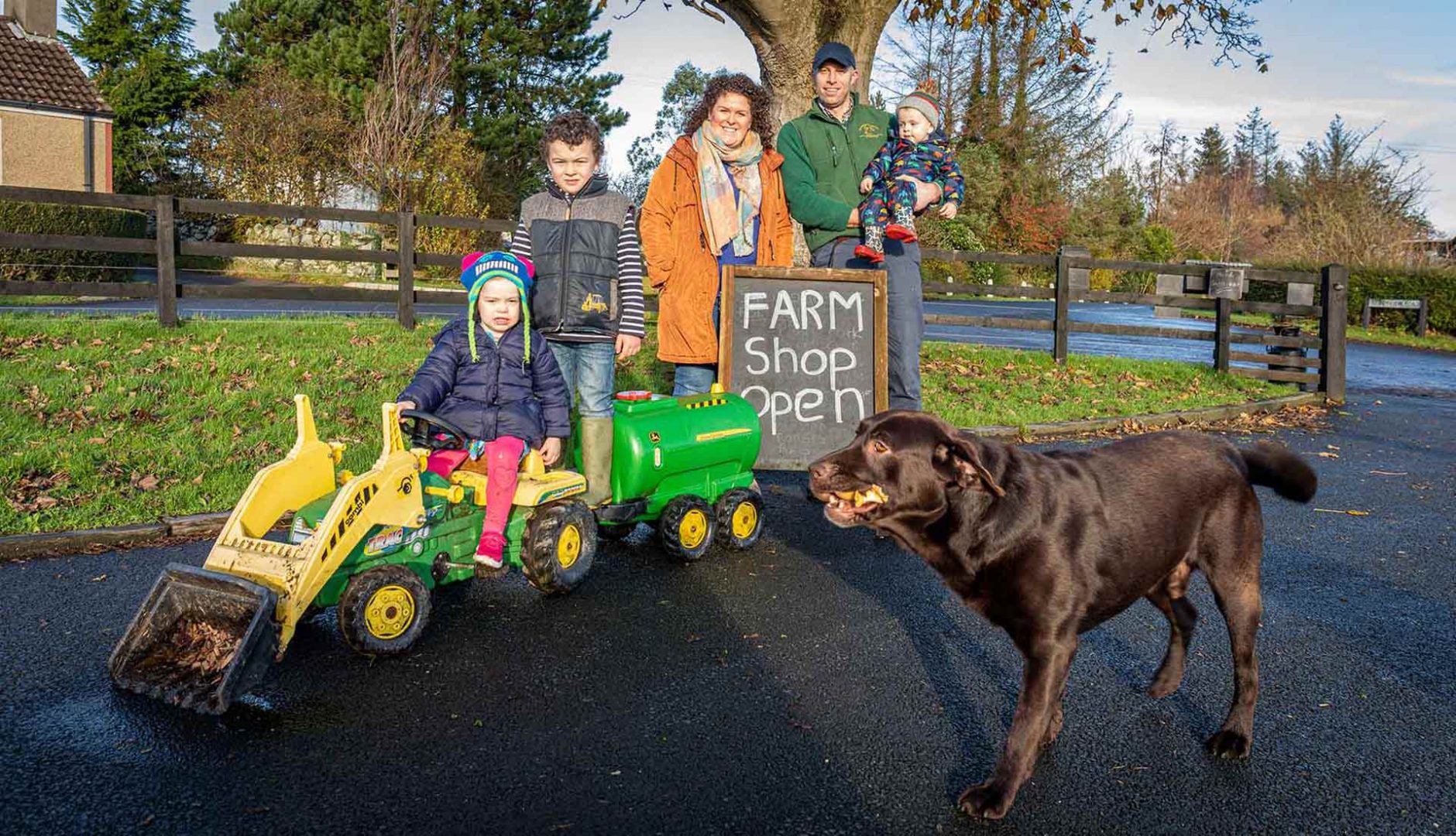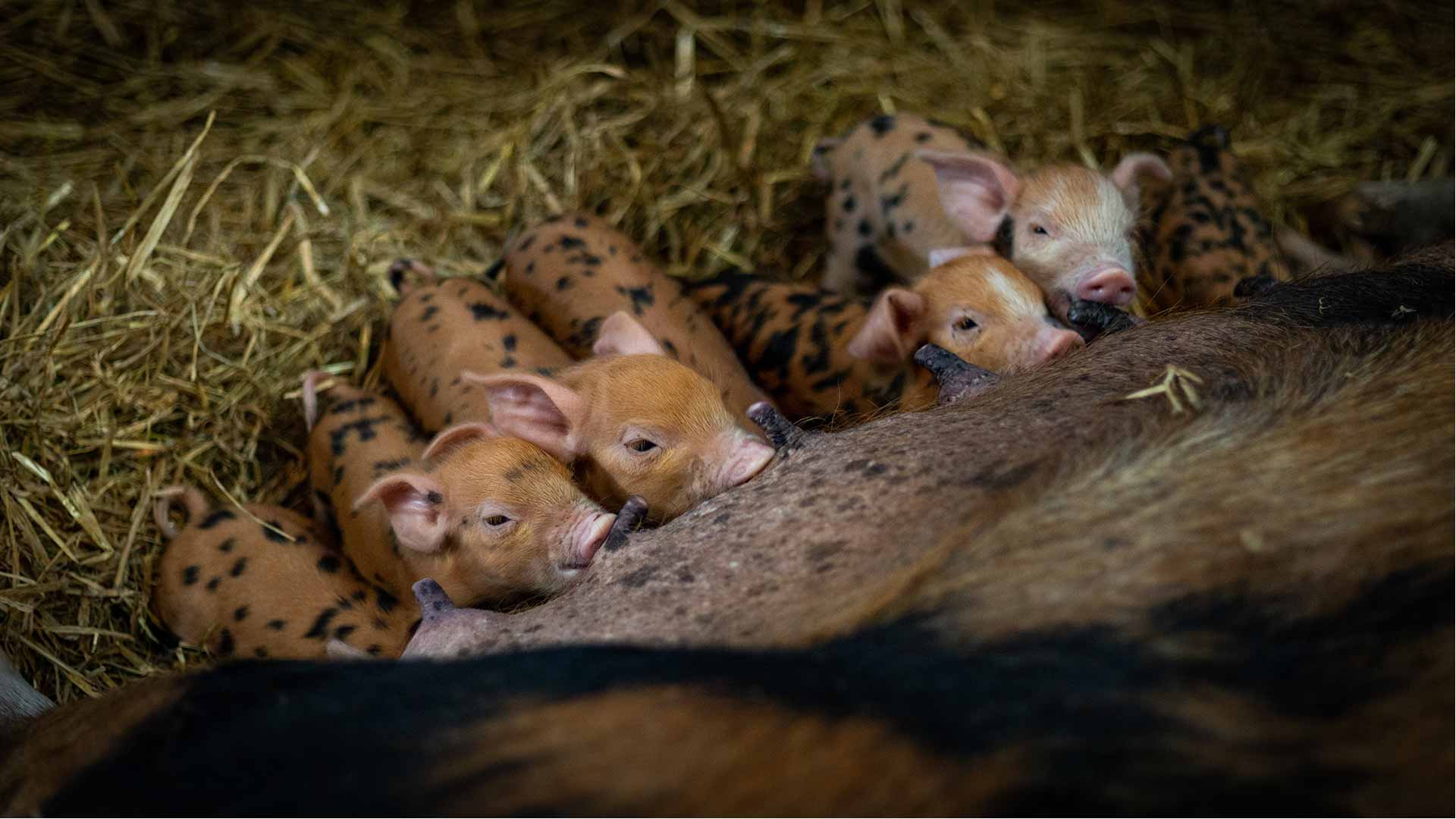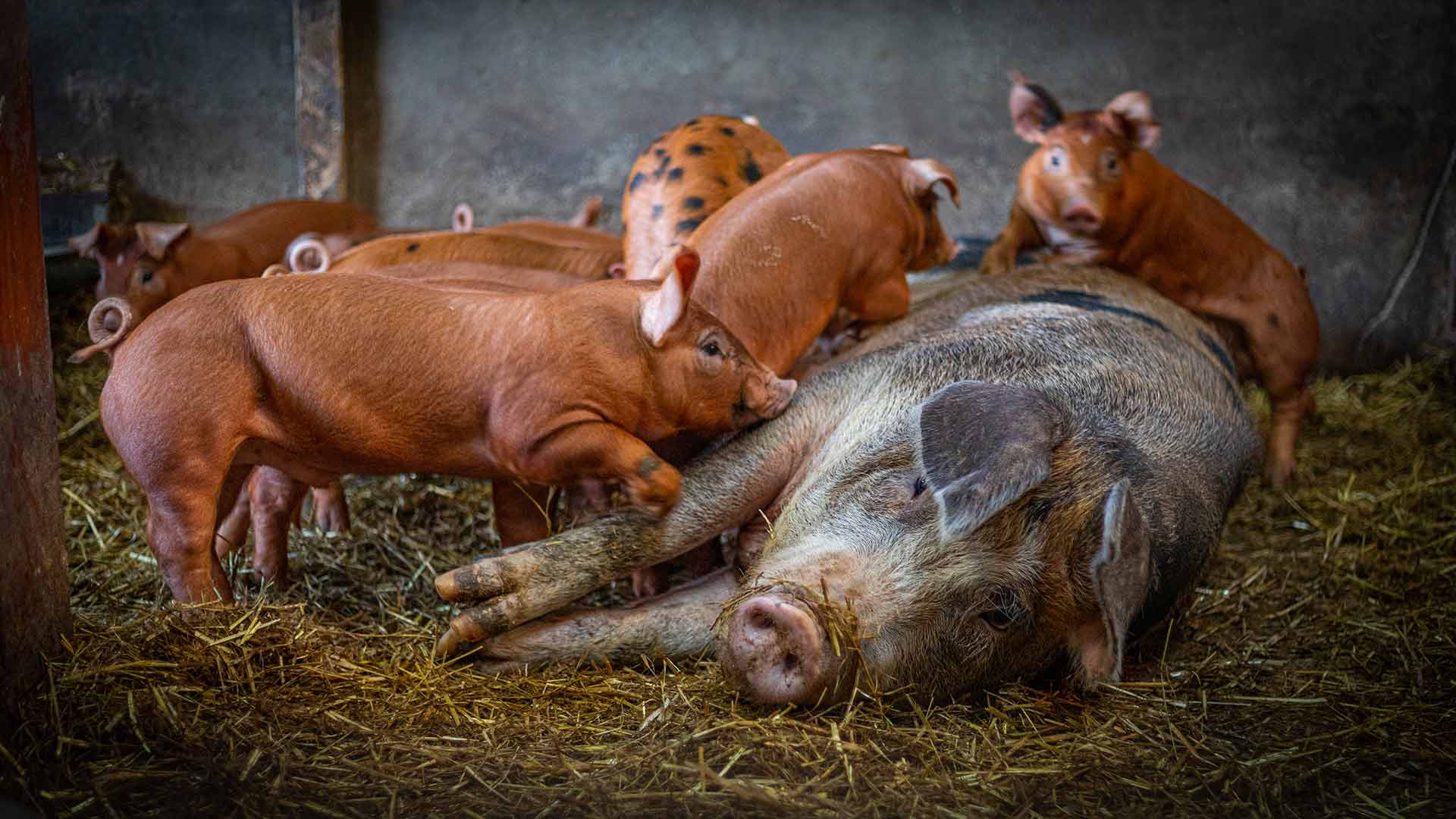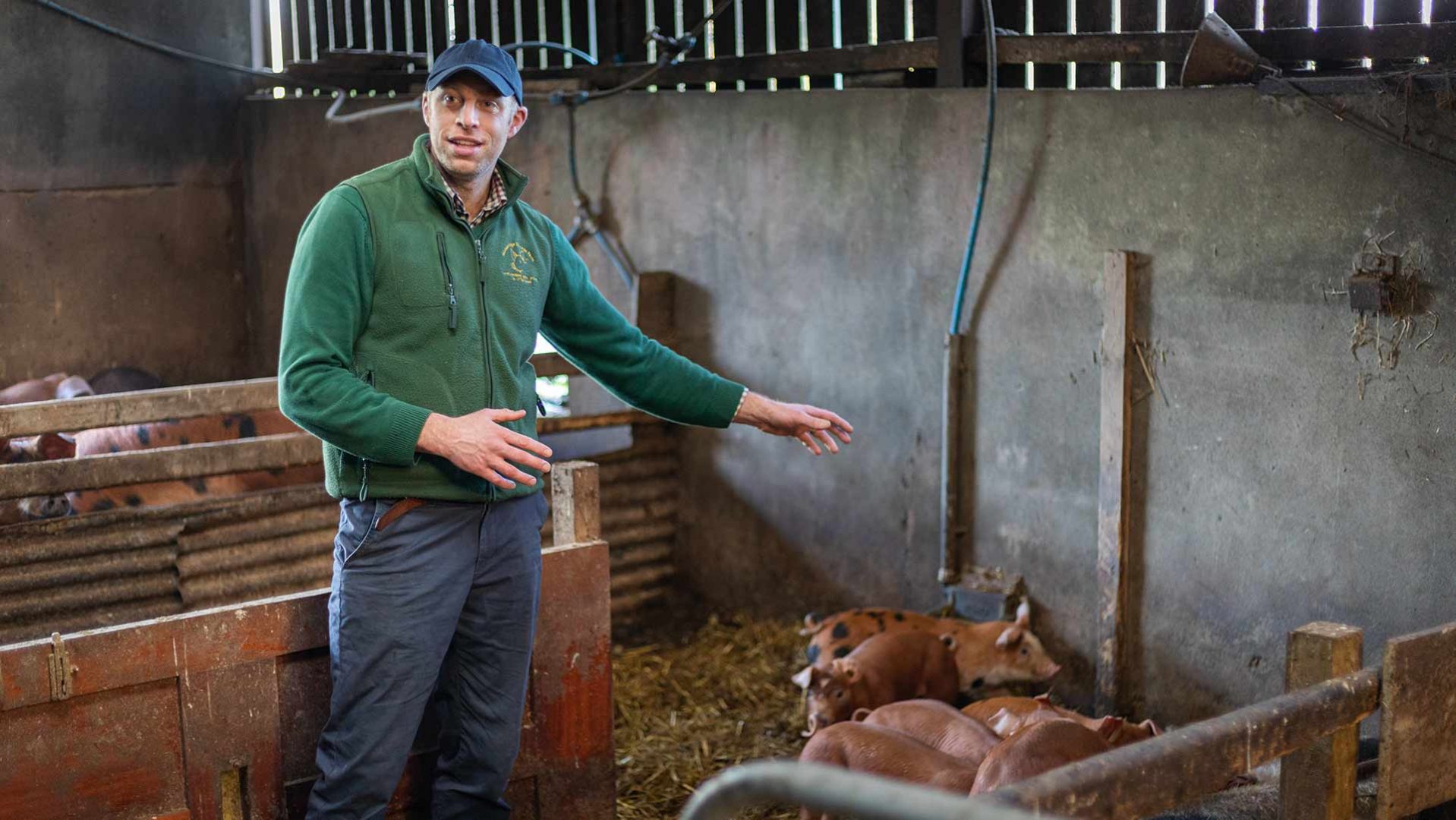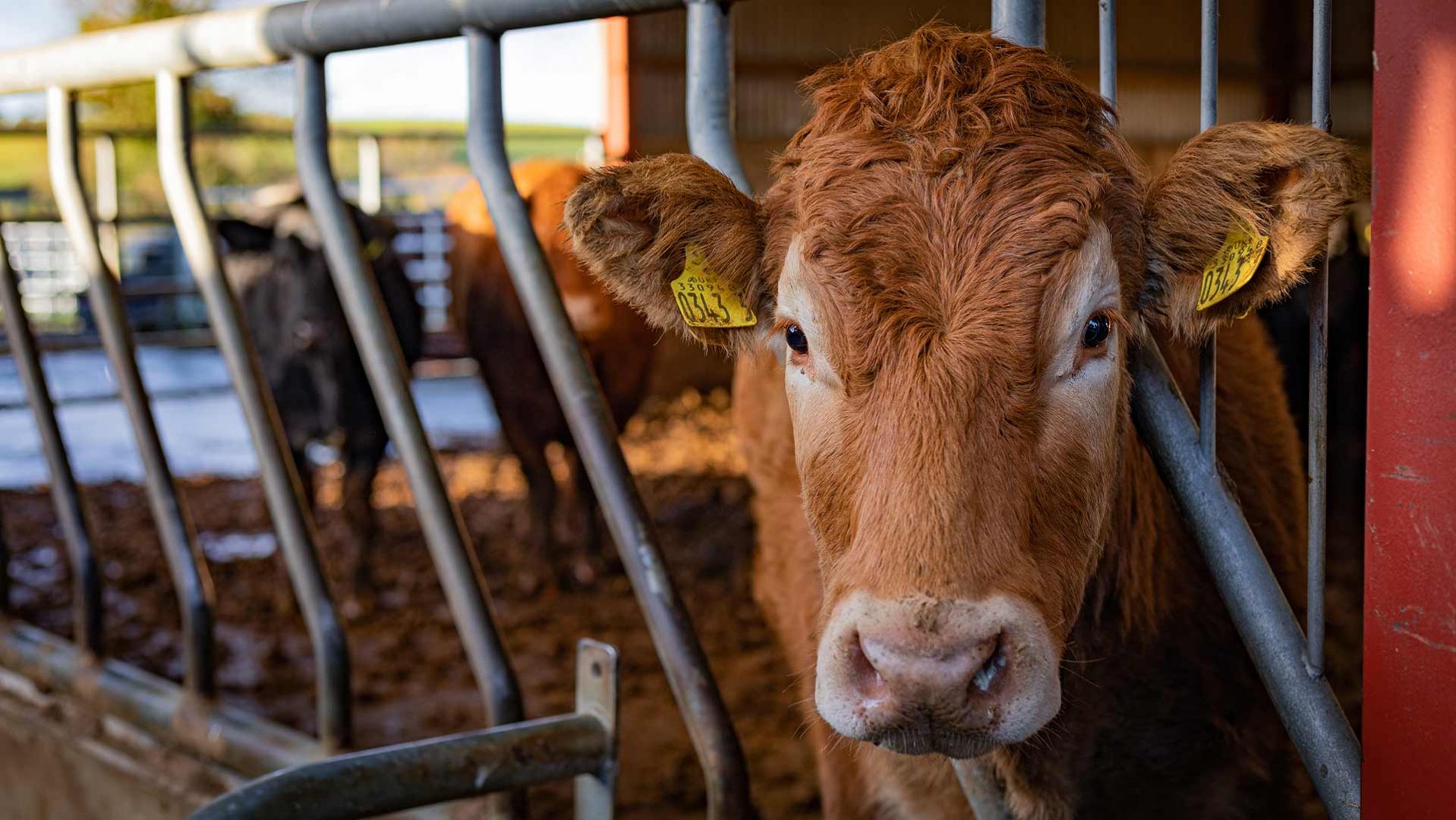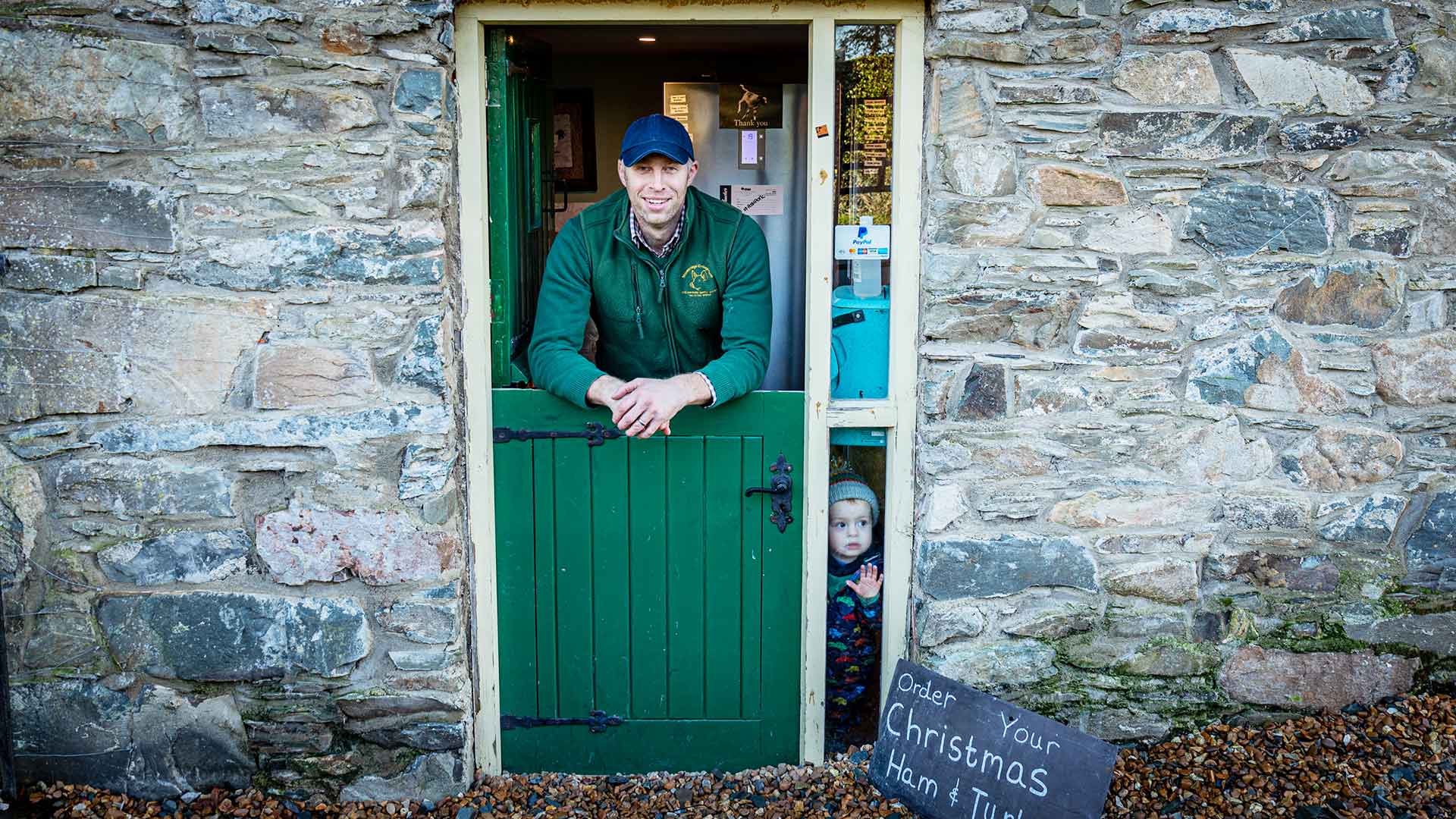God lives between the flesh and bones of a pig
Anthony Bourdain
We met with the Neill family, owners and proprietors of Stonebridge Cottage Farm. While this humble family could easily ‘hog’ the credit for much of Northern Ireland’s ‘swine-ing and dining’ scene, their reserved nature, simple pride in their work and respect for tradition abodes. They’re a refreshing example of the importance of family and what can be done with the cultivation of strong relationships and an open mind.
It also doesn’t hurt that they run the exact kind of business Northern Ireland is in need of, which has not only thrived during a pandemic, but will also continue to alter the course of livestock raising and meat production in Northern Ireland for the better, as ‘local’ becomes increasingly more important in this new economic climate.
It’s also vitally important to remember that those who enjoy boiled chicken breast probably don’t venture far past missionary-style. But pork? Pork is for lovers.
This is what their ‘Pork Master’, Robbie Neill, and their trusty guard dog, Rolo, had to say:
Tell us about the farm?
Our farm has been in the family for several generations. My father built it into what it is now, and we are carrying on the tradition while also giving it our own ‘twist’.
My brother and I have always had a strong interest in farming. I’ve gotten big into pigs, which we haven’t traditionally done as a family. I often wonder what my da would think of the place now. Before we just had sheep and cattle, but we’re now overrun with hogs. My brother has remained in charge of the cattle and is expanding our herd.
We’re located in Derryboye, right in the middle of everything County Down. It’s amazing how much of a ‘foodie capital’ this area has become and we’re so proud to be part of its emergence and working alongside our neighbours.
When did you get your first pig?
I said to my wife, Louise, about getting into pigs and she said, “Not a chance – we’re starting a family!” Little did she know, I already had a sow lined up. A fortnight after that conversation, she went away on a hen party. The minute her tail lights hit the driveway, I hooked up the trailer, put the pedal to the metal and brought back our fist sow. I know, I’m a terrible listener.
When my wife came home, the pig was playing in the mud in the lot behind the house and Louise was like, “Who is that?!”
“That’s Martha, our new pet. Please, just give her a chance!”
Despite being in the ‘dog house’ with Rolo for a while, we’ve now gone from owning a ‘hobby sow’ and having a bit of craic to a full-time business. I never imagined we’d actually be speaking to people about what we’re doing.
What kind of pigs do you have?
We have two kinds of pedigrees – Duroc and Oxford Sandy & Blacks. We’ve actually got a wee litter nursing at the moment and we have some rowdy teenage hogs too. Our pigs are often grown to about 9 months – twice the age of your average commercial pig – before their days start to get numbered. They’re slower growing, meaning they have more muscle, are denser and have a wee bit more fat on them, which equals more flavour.
Oxfords are known for their excellent temperament and mothering abilities. These pigs function well in most environments and are delicious. Their eat is a bit leaner than most traditional breeds. Our Oxfords are raised by our pedigree sow, Duchess, and she makes for a fine mother.
Durocs are an older breed of domestic pig originating in the US. The Duroc’s are docile and are the ideal outdoor pig. In contrast to the Oxford, their succulent and heavy muscling makes them delectable at pretty much any age. They are farrowed by Doris, our Duroc sow.
We pride ourselves in the variety that’s offered from these two different breeds, which gives us the ability to produce meat suitable for a variety of dishes and dining options. One of the things we’ll be doing next is cross-breeding, which will lead to an even higher diversity of products.
While pigs aren’t unheard of in NI, traditionally farming has been centred on cattle and sheep. There aren’t a lot of people doing what we’re doing – stepping down the traditional pedigree line and cross-breeding. So I think this is what sets us apart.
Who do you work with?
Our piggies are free range most of the year and are only sheltered in the winter and when there is inclement weather. Their lifestyle has an effect on their diet and, therefore, we are selective in what we feed them. They are free to roam their own paddocks, forage and socialise. They’re raised sustainably and ethically. This ensures a good quality life – and damn fine meat.
To ensure a quality product, they’re fed on high quality brewer’s grain from the Hilden, Bullhouse, Modest and Farmageddon Breweries, the Hinch Distillery and from leftover whey from Mike’s Fancy Cheese. They also are fed locally sourced vegetables from this region.
What’s great is that we’re able to work alongside with and uplift other local businesses. Our animals are slaughtered and processed in the northwest by Grants Bacon and transported to Mawhinney’s, our local butcher in Newtownards. We sell our products at our own farm shop.
We also supply various local butchers and indie food shops. We’re working with Ispini, providing them meat products for their charcuterie boards, and with catering businesses like the Edible Flower for one-off events and specialty dishes. We also sell whole and half pigs for events like birthdays and anniversaries and are willing and able to host these events and cook for large parties.
We’re trying to get into the restaurant trade more, so it helps that we’re breeding pigs to produce products that suit different dishes. We’re currently supplying pork to the award-winning No. 14 at the Georgian House in Comber.
What’s it like working with other County Down businesses?
Everybody farming, producing and selling food in Co. Down knows each other – we’re our own wee family and it’s great to see so many places finding success. This place is authentically itself – keeping it ‘local’ without all the trendy ‘mumbo jumbo’.
What other animals do you raise?
My brother has about a hundred head of cattle here – he’s in charge of all that. He’s got everything from British blues to traditional breeds. He enters some of them into cattle-showing competitions and takes great pride in his animals.
We also raise Dorset lambs. They are a traditional sheep breed but their lambing cycle is very unique. For most breeds, when the daylight in autumn shortens, this causes a chemical reaction in their eyes and their hormones change, bringing them into cycle and towards the ram. Dorsets are different though. They tend to come into heat around May. You can pretty much lamb them year round, making them very unique animals and they taste good!
We also have a small flock of chickens in our coops to sell eggs in the farm shop and affectionately named the ‘Lay and Stay’ and ‘Cluckingham Palace’. You can give them a visit next time you’re here.
Our lamb and beef products are also available in our farm shop alongside my pork products, and we do specialities like Christmas turkeys at different times of the year. We also offer whole pasteurised chickens form our friends at Nature’s Nosh.
There’s also our loyal and loveable guard dog, Rolo, who ‘rules the roost’ and keeps the bad guys ‘at bay’. When you scratch his belly he emits a friendly growl – it’s just his way of showing affection.
What do you mean by the saying, “The runt of litter sucking the hind tit?”
One interesting thing about pigs that you might not know is, when they’re nursing, they stick to the same teat the whole way through. The bigger pigs will get the teats closest to the mother’s torso where the most milk is produced and the runts will get those near the end. For the first 48 hours they scrap and fight it out for lead tit and the losers fall in line. If you had a tough time with the movie, Deliverance, you should avoid hearing the squeals coming from this pen just after birth.
But, what makes this amazing is, even after nursing is well over, when it’s feeding time they continue to line up in the same formation when I bring them their dinner. They do this the rest of their lives. Nature is a strange and peculiar thing.
Are there pros and cons to raising pigs in this way?
While I am obviously an advocate for raising animals more naturally, doing it this way will mean that you’re likely to lose a couple of piglets during the nursing process. Sometimes, unfortunately, the mother will unknowingly lay on them while nursing and they may pass. This is often prevented in most commercial farms.
In our minds, ‘health is wealth’ and, while we may be getting some undo attention from the hipsters, we simply feel giving the animal a good life is not just better for them but for us, too. While there can be setbacks doing it this way and it is a more labour-intensive process, we think overall that the benefits tip in our favour and the animals leading a healthier and happier life makes a marked difference in the final product.
Having been brought up in the farming industry, we appreciate, embrace and welcome different approaches to farming. We’re not here to compete with anyone, only to offer something different.
How have you adapted to Covid-19?
We’ve done alright over Covid. We were really busy in the early days – it’s all about getting a good system in place. We’ve had more custom than last year and expanded with our beef and lamb products. Social media has been instrumental. If it weren’t for the online presence, we’d probably only be sitting here with a couple of sows and just selling to small, local spots. We were also featured in UTV’s ‘Rare Breed‘ in 2020, which provided further exposure to our pigs and farm. Through all that, we realised there is a market for what we’re doing.
Tell us about the farm shop – how has it fared during the pandemic?
Our farm shop has been open just over a year now. We originally only sold half and whole pigs – that was just to see if they’d sell. Once the first litter went out, we had customers making more specific requests:
“Do you do sausages, or chops, or burgers or anything like that?”
So then we got the idea to do a farm shop and put out some different products. In terms of aesthetics, calling it a ‘farm shop’ is generous – it’s a wee hallway out the back of our cottage with a couple freezers. Perhaps this simplicity is part of its appeal and we couldn’t have predicted that it would perfectly suit a pandemic period.
Future plans?
We may consider expanding the shop once we’re back to ‘normal’. It would be great to have a larger shop where we could do local vegetables, jams and have a place to showcase excellent local products. We’re also planning to start up a hog roast business in the spring for parties and one-off events and host some tasting days at the cottage on special occasions.
Another feature we’ve added is a ‘birth to bacon’ scheme. People can buy a piglet from birth and we’d rear it for them. We do all the work, but it’s their pig. I think this is a great option for people because they know everything about the pig – when it was born, how it was raised and what it was fed. It’s not often that you can truly track your food ‘farm to fork’ like that. In my opinion, that’s a much better option than the supermarkets and works out better for you long term, as you end up with a higher quantity of a healthier and tastier product.
Open farm?
We’d like to make this place an open farm – to have a nucleus of animals all around us which people can bring their kids by to interact with and understand a bit more of what we do and what goes into raising animals. Yes, come up to the farm shop and get your produce, but also take a wee dander about and explore. People already come by and checkout our chicken coops, so how much better would it be if they could interact with a wider variety of animals and see more of the property?
What’s your message for the community at this time?
Come by, meet the fam, give Rolo a scratch and grab some pork. We’ll be here!
